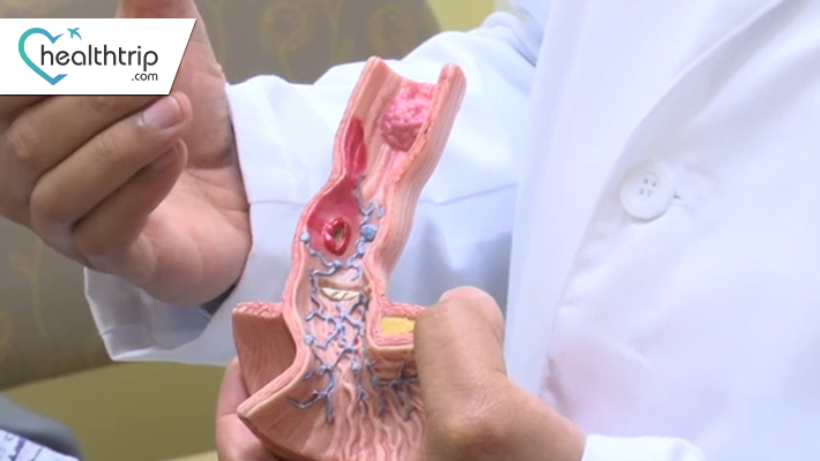
Shedding Light on Esophageal Cancer: A Comprehensive Guide
29 Sep, 2023
 Healthtrip Team
Healthtrip TeamThis blog seeks to unravel the mysteries surrounding this condition, offering a straightforward exploration into what esophageal cancer is, its potential causes, and the avenues of hope in its treatment. Join us on a journey to demystify this aspect of health, providing insights that empower and inform. Understanding esophageal cancer might just be the first step in fostering awareness and promoting early detection for a healthier tomorrow.
What is Esophageal cancer ?
Transform Your Beauty, Boost Your Confidence
Find the right cosmetic procedure for your needs.

We specialize in a wide range of cosmetic procedures

Esophageal cancer refers to the uncontrolled growth of abnormal cells in the esophagus, the tube connecting the throat to the stomach. This type of cancer can disrupt the normal process of swallowing and the passage of food and liquids into the stomach. Esophageal cancer is a serious condition that may present with various symptoms and requires prompt medical attention for diagnosis and appropriate treatment.
Types of Esophageal Cancer
A. Adenocarcinoma
This type originates in the cells of the mucus-secreting glands within the esophagus. Often, it is closely tied to Barrett's esophagus, a condition that stems from prolonged gastroesophageal reflux disease (GERD).
B. Squamous Cell Carcinoma
This variation emerges from the flat, thin cells lining the esophagus. Historically, it has been more prevalent and is commonly associated with habits like smoking and excessive alcohol consumption.
C. Other Rare Types
- Small Cell Carcinoma: While infrequent, this form is notably aggressive.
- Gastrointestinal Stromal Tumor (GIST): These are uncommon tumors that can develop in the esophagus.
Recognizing the specific type becomes pivotal for crafting treatment plans tailored to the distinctive circumstances of each patient.
Most popular procedures in
Laparoscopic Cystect
Upto 80% off
90% Rated
Satisfactory
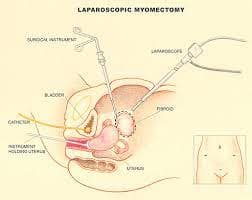
Laparoscopic Myomect
Upto 80% off
90% Rated
Satisfactory
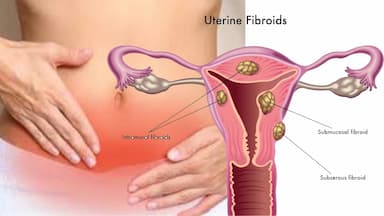
LAVH
Upto 80% off
90% Rated
Satisfactory
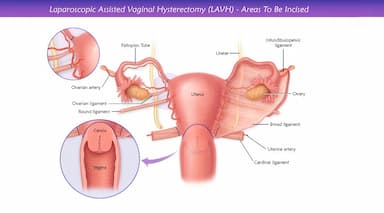
NOTE
Upto 80% off
90% Rated
Satisfactory
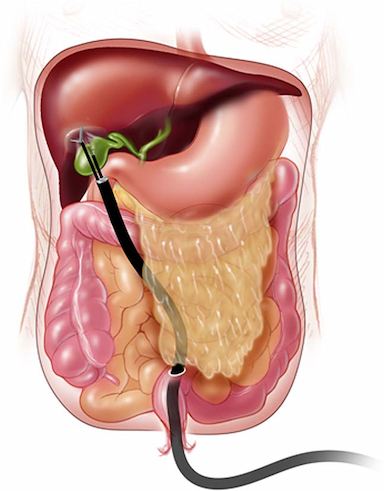
CABG
Upto 80% off
90% Rated
Satisfactory
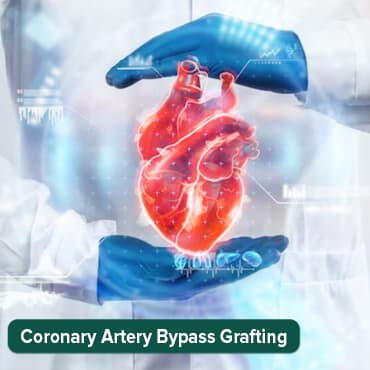
Causes
- Tobacco and alcohol use
- Gastroesophageal reflux disease (GERD)
- Age and gender
- Obesity
- Genetic Factors
Symptoms and Signs
A. Early Symptoms
- Difficulty swallowing (dysphagia)
- Unexplained weight loss
- Chest pain or discomfort
B. Advanced Symptoms
- Persistent cough
- Hoarseness
- Vomiting blood
When it comes to figuring out if there's something amiss in your esophagus, doctors have a few detective tools up their sleeves.
Diagnosis of Esophageal Cancer
A. Endoscopy and Biopsy
Imagine a tiny camera going on a mission inside your body. That's endoscopy! The camera, on a flexible tube, goes down your esophagus, taking pictures. It's like a secret agent, capturing evidence. Doctors can also grab tiny pieces of tissue (biopsy) for closer inspection, almost like a microscopic crime scene investigation.
B. Imaging Tests
- CT Scan: Think of this as your body's panoramic photo. A CT scan combines X-rays from different angles to create a detailed picture. It's like Google Earth for your insides, helping doctors see if there are any irregularities in your esophagus.
- PET Scan: This one is a bit like having a tiny spy in your system. Before the scan, a small amount of a special material is injected. Areas with high cell activity, like cancer cells, light up on the scan. It's a bit like a high-tech treasure map, guiding doctors to potential problem zones.
C. Staging
Now, let's talk about staging. It's like figuring out the battlefield. Doctors want to know how far the cancer has spread. Is it a small skirmish or a bigger conflict? This info helps plan the best way to tackle the problem. It's like making a personalized battle plan based on the unique details of each patient's situation.
Treatment for Esophageal Cancer: In-Depth Exploration
The journey through esophageal cancer treatment is a nuanced expedition, demanding a meticulous approach that is tailored to the unique characteristics of each case. Here's an intricate exploration of the primary treatment modalities:
A. Surgery
Within the realm of surgery, the esophagectomy stands as a pivotal procedure. This surgical intervention involves the removal of either a portion or the entirety of the esophagus, contingent upon the cancer's extent. Subtypes of this procedure include subtotal esophagectomy, which excises a portion, and total esophagectomy, which removes the entire organ. The reconstruction of the digestive tract follows, often utilizing segments of the stomach or the large intestine.
Complementing this, minimally invasive procedures have garnered attention. Techniques such as laparoscopic or robotic-assisted surgeries entail smaller incisions, reducing postoperative discomfort and expediting recovery. Notably, this approach is associated with diminished blood loss, lower risk of complications, and abbreviated hospital stays.
B. Radiation Therapy
Radiation therapy, a cornerstone in cancer care, assumes a crucial role in esophageal cancer treatment. High-energy rays are employed with precision, either to shrink tumors in preparation for surgery or to eradicate residual cancer cells post-surgery. This therapeutic modality encompasses external beam radiation, where rays are directed externally, and brachytherapy, involving the placement of a radiation source directly within or proximate to the tumor.
C. Chemotherapy
Chemotherapy, a systemic treatment, deploys anti-cancer drugs circulating throughout the body. Its versatility is evident in its pre-surgical application to reduce tumor size, post-surgical use to eliminate lingering cancer cells, and as a palliative measure. Administration methods range from oral intake to intravenous infusion, offering flexibility in adapting to patient needs.
D. Targeted Therapy
At the forefront of precision medicine, targeted therapy zeroes in on specific molecules pivotal for cancer growth. This approach distinguishes itself by selectively targeting cancer cells while sparing healthy ones. Its applications are particularly notable in cases where conventional chemotherapy may exhibit limitations.
E. Immunotherapy
Immunotherapy, an avant-garde frontier in cancer research, harnesses the body's immune system to recognize and combat cancer cells. While investigational, its promise is increasingly evident, especially in cases where conventional treatments may fall short. Research endeavors continue to illuminate its potential impact.
F. Palliative Care
Integral to the comprehensive care paradigm is palliative care, emphasizing the enhancement of patients' quality of life. It is not confined to advanced stages but is seamlessly integrated at any treatment phase. This holistic approach extends beyond physical aspects to encompass emotional and spiritual dimensions, underscoring the importance of a patient-centric approach to care.
In this intricate interplay of treatments, decisions are contingent upon nuanced factors such as cancer type, stage, and the overall health of the patient. The orchestration of these modalities demands collaborative efforts among oncologists, surgeons, and an array of specialists, epitomizing a unified front against esophageal cancer.
How can we help with the treatment?
If you're on the lookout for treatment in India, Thailand, Singapore, Malaysia, UAE, and Turkey, let Healthtrip be your compass. We will serve as your guide throughout your medical treatment. We'll be by your side, in person, even before your medical journey commences. The following will be provided to you:
- Connect with renowned doctors from a network spanning 35+ countries and access the world's largest health travel platform.
- Collaboration with 335+ top hospitals , including Fortis and Medanta.
- Comprehensive treatments from Neuro to Cardiac to Transplants, Aesthetics, and Wellness.
- Post-treatment care and assistance.
- Teleconsultations at $1/minute with leading surgeons.
- Trusted by 44,000+ patients for appointments, travel, visa, and forex assistance.
- Access top treatments and packages, such as Angiograms and many more.
- Gain insights from genuine patient experiences and testimonials.
- Stay updated with our medical blog.
- 24/7 unwavering support, from hospital formalities to travel arrangements or emergencies.
- Pre-scheduled specialist appointments.
- Prompt emergency assistance, ensuring safety.
Our patient success stories
See more inspiring testimonials of Healthtrip
Risk Factors
- Smoking and Alcohol Consumption : Lighting up and excessive drinking: a tag team of risk factors.
- Obesity : The heavyweight risk, where excess pounds play a role in upping the cancer ante.
- Barrett's Esophagus : A precursor, like a warning sign on the road to esophageal cancer.
- Age and Gender : Time's influence and gender dynamics contributing to vulnerability.
Complications
- Obstruction of the Esophagus: A roadblock in the digestive highway, causing trouble in the passage of food.
- Metastasis to Other Organs: The ominous spread beyond the esophagus, like a wildfire jumping borders.
- Nutritional Deficiencies: A fallout of the battle, where the body loses essential resources.
How to prevent ?
- Quit Smoking and Limit Alcohol:
- Quit smoking to reduce a major risk factor.
- Limit alcohol intake to lower the risk.
- Manage GERD:
- Work with your healthcare provider to manage acid reflux symptoms.
- Maintain a Healthy Lifestyle:
- Maintain a healthy weight through diet and exercise.
- Screening for High-Risk Individuals:
- Individuals with risk factors may benefit from regular screenings.
- Balanced Diet and Regular Exercise:
- Consume a diet rich in fruits, vegetables, and whole grains.
- Engage in regular physical activity.
In summary, esophageal cancer poses a significant challenge, but with knowledge, early detection, and comprehensive treatment, we can confront it effectively. The key lies in recognizing the urgency of early detection – the linchpin in this battle. From surgery to targeted therapies, our treatment arsenal is vast, demanding strategic deployment.
Wellness Treatment
Give yourself the time to relax
Lowest Prices Guaranteed!

Lowest Prices Guaranteed!